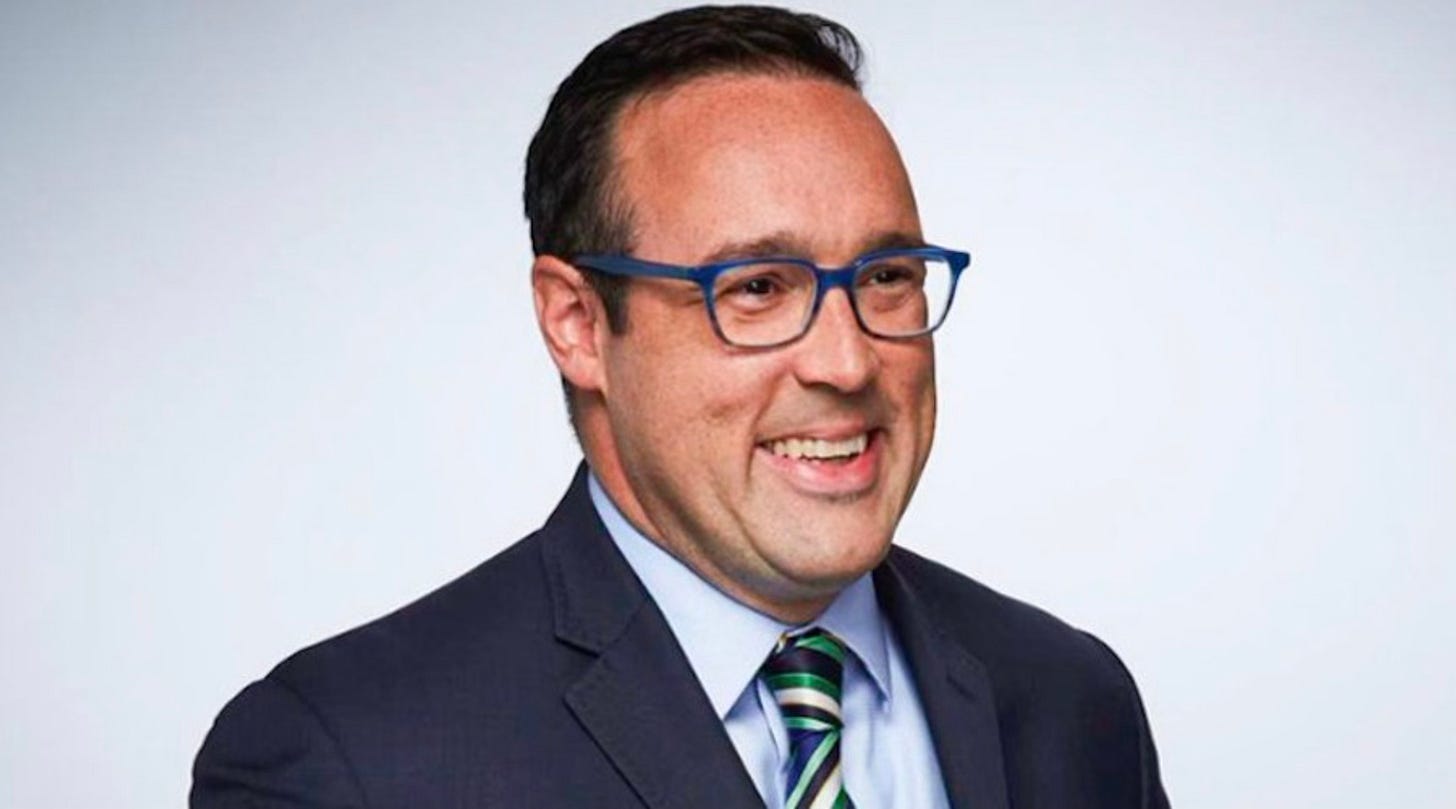The Mandy Jenkins Memorial Scholarship will honor the legacy of my friend and former coworker by supporting a student news leader at Kent State.
What is your current job?
I write a daily Substack newsletter called “So What” and make videos twice a week on YouTube under the same brand. I started all of this after I got laid off by CNN — which was a year ago Tuesday (not that I am counting or anything — HA!)
What was your first byline?
So, it wasn’t my first byline but the one I remember most from early in my career was a piece called “A Spouse in the House” that ran in The Atlantic magazine in April 2005. (It was about the success rate of spouses who run for Congress to succeed their deceased husband or wife.) It’s still online too!
I was in a period where I was pitching a lot of free lance pieces — just to get my name out there — and getting a lot of rejections. That The Atlantic — a magazine I had long admired — thought I was good enough to publish something I had written was a MASSIVE boost of confidence.
What was your first real job in journalism?
Well, my FIRST job out of college was working for Charlie Cook, the political handicapper. I got to work with great people there — Charlie, Amy Walter, Jennifer Duffy — and realized I was super interested in politics. (I took a total of zero politics or journalism classes at Georgetown, so this was a major revelation for me!) I decided after a few years there that I wanted to do hardcore political journalism — day in and day out. So I went to Roll Call, where I was grinding out 2-3 stories for every edition. We had an amazing staff then. Just a FEW of the people I got to work with: Paul Kane (WaPo), Mark Preston (CNN), John Bresnahan (Punchbowl), Tim Curran (formerly WaPo), Damon Chappie (a legendary investigative reporter now unfortunately deceased), Rachel Van Dongen (WaPo) and Brody Mullins (WSJ). I am leaving names off I am sure but suffice to say it was a very talented group of people to be around and learn from.
How did you get it?
So, my sophomore year of college, a guy I didn’t really know (he was a junior) approached me and asked whether I wanted to work for a “prominent journalist.” He offered no other details. It was, in a word, weird. He told me to show up at an address in Georgetown. I was naive and innocent, so I did. Turned out the job was working as a research assistant for the conservative columnist George F. Will. (The guy who approached me is named Jed Donahue and is the smartest person I have ever met — and a great friend.) I wound up working for George Will for the rest of college. I helped do research for columns, tried to fix his computer when it broke (He had an ancient machine with WordPerfect on it — ask your parents) and, for a month in the summer, housesat for him when he went to California. That was the best part of the job for two reasons: 1) He had a big screen TV (this was the 1990s and almost no one did) and 2) He had a pool. When I was graduating in 1998, I had no idea what to do with my life. George Will put me in touch with Charlie — he occasionally used Charlie’s handicapping in columns — and that’s how I got my first gig.
What advice do you have for people looking to break into journalism?
Write. A lot. Anywhere and everywhere you can. There are more ways to do that — Substack being a GREAT one — than there were when I was breaking into the industry. Whether you want to go into digital journalism or TV or radio or podcasting or WHATEVER, finding your voice — to me — is the most important thing you can do. Once you find that voice, stick with it. Trust that it’s unique, different and valuable.
Find Chris on his Substack, LinkedIn and X.




